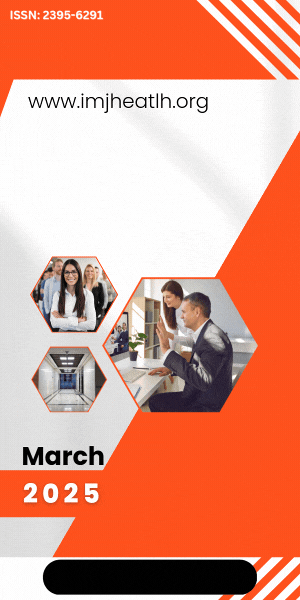How to Apply for the PhD Scholarships Worldwide in Medicine and Pharmaceuticals

Discover how aspiring researchers in medicine and pharmaceutical sciences can access fully funded PhD scholarships worldwide. This guide covers top scholarship sources, application tips, and strategies to strengthen your profile. Learn how to find the right program, secure funding, and advance your career in health, biomedical, and pharmaceutical research.
A PhD in medical or pharmaceutical sciences allows scholars to advance innovations in drug development, clinical practice, disease diagnostics, and healthcare policy. However, pursuing this advanced research degree often involves high costs. To support emerging scientists, governments, universities, and research institutes around the world offer fully funded PhD scholarships that cover tuition, research costs, and living expenses. This guide will help medical and pharmaceutical aspirants discover top global PhD scholarships and learn how to successfully apply.
Why Apply for a PhD Scholarship in Medical or Pharmaceutical Sciences?
The field of medicine and pharmaceuticals is ever-evolving, driven by evidence-based research, clinical trials, and technological innovation. Earning a PhD in these disciplines not only provides specialized knowledge and research skills but also enhances your ability to contribute to global healthcare systems.
Scholarships make this path more accessible by offering:
- Full tuition support
- Monthly living stipend
- Research and laboratory funding
- Support for clinical studies or fieldwork
- Conference travel grants and publication funding
These benefits allow scholars to focus on impactful research without the financial pressures often associated with doctoral studies.
Where to Find the Best PhD Scholarships for Medical and Pharmaceutical Fields:
Finding the right scholarship requires knowing where and how to look. Opportunities are available across leading research universities, public health institutions, pharmaceutical companies, and government programs. Many of these scholarships are geared toward international collaboration and translational research.
1. University and Medical School Websites:
Many leading medical schools and pharmaceutical faculties host internal fellowships or doctoral training programs. Look into:
- MD-PhD programs or Clinical Research Fellowships
- Integrated doctoral training programs (especially in the UK and Europe)
- Graduate research fellowships in biomedicine, pharmacology, and public health
2. Government-Funded Programs:
National governments often fund PhD programs to promote healthcare innovation and build research capacity. Prominent programs include:
- DAAD Research Grants – Medicine & Public Health (Germany)
- NIH Oxford-Cambridge Scholars Program (USA/UK)
- UKRI Medical Research Council (UK)
- INSPIRE Fellowship – Department of Science and Technology (India)
- Australia Awards for Public Health and Medical Science (Australia)
3. Research Institutes and Health Organizations:
Top-tier global research institutes actively recruit PhD students in areas like cancer biology, drug design, and global health:
- Wellcome Trust Doctoral Programmes (UK)
- EMBL International PhD Programme (Europe)
- Max Planck Institute for Infection Biology (Germany)
- Pasteur Institute PhD Programs (France)
- ICMR-JRF & Postdoctoral Fellowships (India)
4. Online Scholarship Portals:
Use advanced search tools to find medical/pharma-focused PhD scholarships:
- FindAPhD.com (Biomedical Sciences category)
- ResearchGate job board
- ScholarshipsAds.com (Public Health, Clinical Medicine)
- PhDPortal.com (Life Sciences, Pharmacy, Epidemiology)
How to Apply: Step-by-Step Guide for Health Science Candidates:
PhD admissions and scholarship applications in medicine and pharmaceuticals are typically competitive and require detailed preparation. The following steps will help ensure you’re submitting a strong application:
Step 1: Define Your Research Focus:
Choose a research topic that addresses real-world health or pharmaceutical challenges — such as drug resistance, vaccine development, health policy, or personalized medicine. Your topic should be novel, feasible, and aligned with the expertise of the institution or lab.
Step 2: Identify Potential Supervisors and Institutions:
Shortlist programs or research groups whose work aligns with your interests. Investigate faculty publications, ongoing clinical trials, and funded projects. Many programs require supervisor approval before applying.
Step 3: Prepare Required Documents:
Typical application components include:
- Detailed academic CV (with clinical/research experience)
- Statement of Purpose explaining your motivation
- Research proposal tailored to a specific theme
- Letters of recommendation (ideally from research mentors or clinicians)
- Academic transcripts and English language test scores
Step 4: Submit Scholarship and Program Applications:
Some PhD programs automatically consider candidates for funding; others require a separate scholarship application. Always confirm whether the funding is attached to a project or open-ended.
Step 5: Prepare for Interview Rounds:
You may be invited for interviews to assess your research aptitude and communication skills. For clinical PhD programs, expect questions on ethical considerations, trial design, or patient outcomes.
Tips to Strengthen Your Medical/Pharma Scholarship Application:
- Emphasize your prior research or clinical experience (even internships or thesis work).
- Highlight published work, conference presentations, or lab techniques mastered.
- Show how your goals align with national or institutional health priorities.
- Explain how your PhD research can contribute to better patient care or drug development.
- Demonstrate long-term commitment to academic or translational research.
Top Country-Specific PhD Scholarship Programs in Health Sciences:
| Country | Program Name | Focus Areas |
|---|---|---|
| USA | NIH PhD Fellowships, Fulbright Health Research | Biomedicine, Clinical Research, Public Health |
| UK | Gates Cambridge, Wellcome Trust, MRC | Genomics, Health Economics, Translational Medicine |
| Germany | DAAD, Helmholtz, Max Planck Institutes | Molecular Biology, Infectious Disease, Immunology |
| Australia | RTP, Australia Awards | Public Health, Mental Health, Tropical Diseases |
| Canada | Vanier Canada Graduate Scholarships | Health Systems, Neurosciences, Pharmaceutics |
| France | Pasteur Institute PhD Programme | Virology, Microbiology, Vaccinology |
Whether you're passionate about global health, pharmaceutical innovation, or clinical trials, a PhD can provide the platform to make a significant impact in the medical world. With the right preparation, research, and mentorship, you can secure fully funded scholarships that support your journey from student to scientific contributor. As the demand for evidence-based healthcare solutions continues to rise, PhD-trained professionals are more vital than ever. Start early, stay focused, and align your application with global health needs — the future of medicine and pharmacy is in your hands.
FAQs on PhD Scholarships in Medical and Pharmaceutical Sciences:
1. What are the benefits of a PhD scholarship in medical or pharmaceutical fields?
A PhD scholarship covers tuition fees, living expenses, and research funding. It allows scholars to focus on academic research without financial stress, supports participation in conferences, and provides global networking opportunities in clinical, biomedical, and pharmaceutical science fields.
2. Who is eligible to apply for a medical or pharmaceutical PhD scholarship?
Eligibility usually includes a master’s degree (or equivalent) in medicine, pharmacy, biomedical sciences, or a related field, along with a strong academic record, research experience, and sometimes proof of English proficiency (IELTS/TOEFL).
3. Can international students apply for government-funded PhD scholarships?
Yes. Most major scholarship programs like DAAD (Germany), Gates Cambridge (UK), and Australia Awards accept applications from international students pursuing health-related PhD research.
4. What documents are required for a PhD scholarship application?
Commonly required documents include:
- Academic CV
- Statement of Purpose or Research Proposal
- Academic transcripts and certificates
- Letters of recommendation
- Proof of language proficiency
- Sometimes, evidence of publications or clinical work
5. Are there scholarships specifically for pharmacy students?
Yes. Several programs fund research in pharmacology, drug delivery systems, regulatory science, and pharmaceutical technology. Look for scholarships from pharmaceutical universities, industry collaborations, and global research institutions like EMBL or NIH.
6. How competitive are these scholarships?
PhD scholarships in medicine and pharmacy are highly competitive due to limited seats and global demand. A strong application with relevant experience, clear research goals, and alignment with the funding body's priorities increases your chances.
7. Do I need to find a supervisor before applying?
Often yes, especially in Europe and the UK. Many institutions require applicants to contact and receive informal approval from a potential supervisor before submitting the formal application.
8. Can I work during my PhD if I’m on a scholarship?
Some scholarships permit part-time academic work like teaching or research assistance, while others have restrictions. It’s important to review the terms of each scholarship and your student visa regulations.
Contact Medical Journal: IMJ Health
- Website: www.imjhealth.org
- Editor-in-Chief: Dr. Kusum Lata Gaur | MBBS, MD(PSM), CIC (IGNOU), PGCHFWM
(NIHFW) (WHO Fellow IEC)
Professor, PSM & Member of Research Review Board | SMS Medical College, Jaipur (Rajasthan) India - Editor-in-Chief Email ID: info@imjhealth.org
- General Support Email: info.imjh@gmail.com
- Contact us on WhatsApp: Chat Now : +91-7665235235

 October 2025 Articles
October 2025 Articles Submit Article
Publication Fee
Research Areas
Guidelines for Authors
Process of
Publication
Journal Importance
Journal Indexing
Journal Polices
Digital
Identification Number
FAQs
Submit Article
Publication Fee
Research Areas
Guidelines for Authors
Process of
Publication
Journal Importance
Journal Indexing
Journal Polices
Digital
Identification Number
FAQs
| Citation Indices | All | Since 2019 |
| Citation | 280 | 209 |
| h-index | 7 | 7 |
| i10-index | 3 | 1 |
| Acceptance Rate (By Year) | |
| Year | Percentage |
| 2024 | 8.17% |
| 2023 | 10.84% |
| 2022 | 9.14% |
| 2021 | 11.26% |
| 2020 | 11.8% |
| 2019 | 10.3% |
| 2018 | 8.65% |
| 2017 | 12.9% |
| 2016 | 10.9% |
| 2015 | 12.5% |
